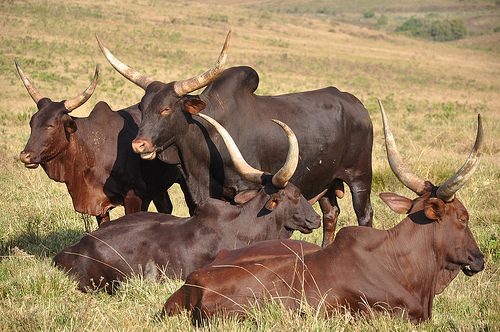This write-up was inspired by an article I read about the future of meat and the possibility of culturing meat in the laboratory. The article got me thinking so I decided to have a discussion with my friends on this issue. The feedback I got was both intriguing and entertaining. This gave me a better grasp of how to navigate this controversial and sensitive issue.

I am sure not many people are aware of the negative impact of meat consumption on the environment. It is saddening to know that this delicacy often relished in our part of the world has significant negative environmental impacts. The rearing and processing of meat requires enormous amount of resources such as water, land and energy.
Water is needed in growing plants for the consumption of farms animals most especially cows and for drinking by the animals. In addition, enormous portions of land are also required to cultivate crops which would be fed to farm animals. More than two-thirds of all agricultural land is devoted to growing feed for livestock, while only 8% is used to grow food for direct human consumption. This clearly shows that meat is one of the food products with the greatest environmental impact because of the inefficiency of animals in converting feed to meat.
The breeding, processing and distribution of cows for human consumption cause pollution in addition to eutrophication and acidification of water ways. Pesticides, fertilisers, wastewater from processing and other waste products are washed into waterways, causing pollution and destroying the natural flora and fauna. GHGs (greenhouse gases) are also released into the atmosphere, the most significant being methane which is produced by cows as a by-product of digestion. Methane is one of the GHGs responsible for global warming and consequently climate change.
Eating too much red meat also has negative implications for our health, with overindulgence linked to increasing rates of heart disease, cancer and obesity. The widespread use of antibiotics to keep livestock healthy on overcrowded farms has led to the development of antibiotic-resistant strains of bacteria that threaten human health and the environment. In Nigeria, grazing of cows is a major factor responsible for violent clashes between herdsmen and local farmers. The scarcity of grasses and plants for consumption for cows has resulted in loss of lives and property.
I am sure you are wondering what can be done to change this narrative. The major step is consuming less meat. I know this may be difficult as meat is a major constituent in our diet. However, dietary changes with emphasis on consumption of less meat is a significant step towards reducing the negative environmental impacts of the production and processing of meat. Some individuals are opting for a vegetarian or flexi vegetarian lifestyle. According to a report in 2017, the number of US consumers claiming to be vegan has risen from 1% in 2014 to 6% in 2017.
Vegetarians take out meat completely from their diet while flexitarians (flexitarianism) are vegetarians who eat meat occasionally, more like “meat eating vegetarians”. You can also ensure you purchase meat produced from local farms where the livestock are reared using organic mixed farming methods. In organic mixed farming, waste from farm animals are used as manure for crops. Pesticides, fertilisers, antibiotics and man-made chemicals are not used, so pollution of waterways by chemicals is greatly minimised.
Some schools of thought argue that governments should adopt policies that favour small-scale mixed farming that incorporates animal husbandry. It also argued that governments can curb meat consumption by introducing tax on meat and dairy products.
The future of meat could be a shift from rearing livestock for meat to culturing of meat in the laboratory as earlier mentioned in this article or plant-based meat. The idea is to produce animal meat, but without using animals. Culturing of meat involves producing meat from stem cells extracted from animals and then cultivated in the lab. Plant-based meat, which is already being sold to consumers in some countries such as Australia and America, is meat made from plants and non-animal-based products. Cultured meat and plant-based meat could have financial, health, animal welfare and environmental advantages over traditional meat.
So, whenever you are about to eat any meal garnished with enticing pieces or chunks of meat, spare a thought for the negative impacts it would have caused the environment from the farm to your fork.
Links for further information: Is lab-grown meat the future? Can these mock meat entrepreneurs fool you with a plant-based burger? Will Lab Grown Fish Save Oceans?
By Adenike Adediran, Lagos, Nigeria; @nikeayaoba
